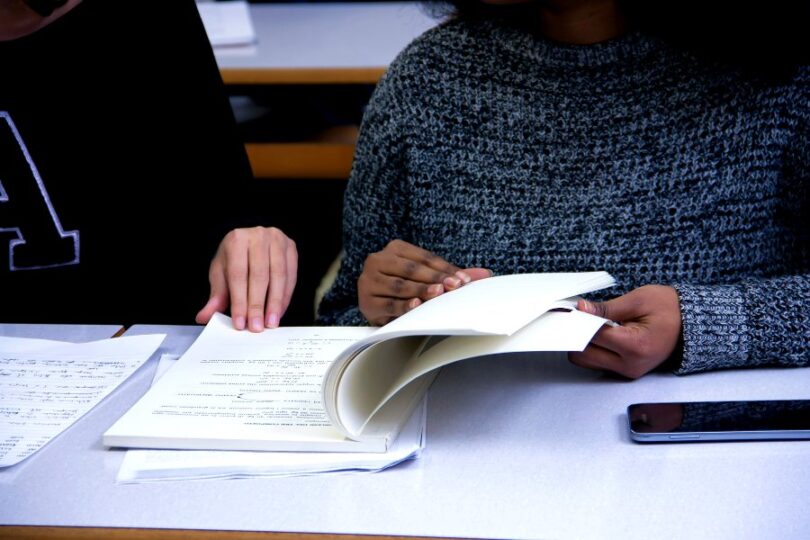Chemistry, often referred to as the “central science,” is a subject that plays a pivotal role in our understanding of the natural world. From the composition of matter to chemical reactions, it forms the foundation of various scientific disciplines. Whether you’re a student looking to excel in exams or someone with a genuine interest in chemistry, the question of whether self-studying chemistry is worth it is a common one. In this blog post, we will explore the pros and cons of self-studying chemistry, helping you make an informed decision about your learning journey. For additional guidance and support, you can also consider the chemistry tuition singapore to enhance your understanding of this fascinating subject.
1. Flexibility and Customization
One of the most significant advantages of self-studying chemistry is the flexibility it offers. You can choose your study schedule, pace, and the specific topics you want to focus on. This customization is especially valuable if you have a busy schedule or if you wish to explore chemistry beyond what is taught in traditional courses. Self-studying allows you to delve deeper into areas that pique your interest, much like customizing your own home to create the perfect environment for learning. Self-studying allows you to delve deeper into areas that pique your interest, much like customizing your own home to create the perfect environment for learning.
2. Self-Paced Learning
Self-studying puts you in control of your learning speed. Some individuals grasp concepts quickly and may find traditional classroom instruction too slow, while others may need more time to understand complex topics. With self-study, you can proceed at your own pace, ensuring a thorough understanding of each topic before moving on.
3. Resource Variety
The internet has revolutionized self-studying. There is a wealth of online resources available, including textbooks, video lectures, interactive simulations, and educational websites. These resources provide a diverse set of materials to cater to different learning styles and preferences. You can choose the resources that resonate with you the most.
4. Cost-Effective Learning
Self-studying chemistry can be cost-effective. You can access many educational materials for free, reducing the need for expensive textbooks or tuition fees. This is especially valuable for students on a tight budget.
5. Ownership of Learning
Self-studying fosters a sense of ownership of your learning. You are responsible for setting goals, tracking progress, and deciding when and what to study. This autonomy can be empowering and help you develop critical skills that extend beyond the subject matter.
Cons of Self-Studying Chemistry
1. Lack of Structure and Guidance
While flexibility is a benefit, it can also be a drawback. Without a structured curriculum or a teacher to guide you, you might struggle with where to start, how to progress, or what to prioritize. This lack of structure can be overwhelming, especially for beginners.
2. Difficulty in Staying Motivated
Self-studying requires a high level of self-motivation and discipline. It can be challenging to stay focused and committed to your study routine, as there are no external deadlines or accountability measures. Many students find it difficult to maintain consistent study habits.
3. Limited Access to Laboratories
Chemistry is an experimental science, and hands-on laboratory work is essential to fully grasp concepts. Self-study can be limiting in this aspect, as you may not have access to the necessary laboratory equipment and experiments. This lack of practical experience can leave gaps in your understanding.
4. Limited Opportunities for Interaction
In a traditional classroom, you have the opportunity to interact with peers and ask questions directly to an instructor. Self-studying may leave you feeling isolated, with fewer opportunities to discuss complex concepts, seek help, or engage in group discussions.
5. Potential for Misconceptions
Without guidance from an experienced instructor, you may develop misconceptions about certain topics. These misconceptions can be difficult to correct and may negatively impact your overall understanding of chemistry.
Is Self-Studying Chemistry Right for You?
The decision to self-study chemistry ultimately depends on your individual learning preferences, goals, and circumstances. Here are some factors to consider:
1. Your Learning Style
If you are highly self-motivated, enjoy setting your own learning pace, and have the ability to stay organized, self-studying chemistry may be a good fit for you. However, if you thrive in structured environments with guidance and deadlines, traditional classroom settings might be more suitable.
2. Your Goals
Consider your academic or career goals. If you require a strong foundation in chemistry or plan to pursue a career in a chemistry-related field, formal education with laboratory experience is often necessary. Self-study can complement your formal education but may not fully replace it.
3. Available Resources
Assess the availability of resources and materials for self-study. The more resources you have access to, the more effective your self-study experience can be.
4. Self-Motivation and Discipline
Evaluate your self-motivation and discipline. Are you capable of creating and maintaining a consistent study schedule? If you tend to procrastinate or lose focus easily, self-studying chemistry might be challenging.
5. Supplementing Self-Study
Many successful students combine self-study with other learning methods. For example, you could use self-study to explore topics of personal interest while taking formal chemistry courses to ensure a strong foundational understanding.
Tips for Effective Self-Study in Chemistry
If you decide to embark on a journey of self-studying chemistry, here are some tips to make your experience more effective:
- Set Clear Goals: Define your objectives and what you want to achieve through self-study. This will help you stay focused.
- Create a Study Schedule: Establish a consistent study routine. Allocate specific times for learning and stick to your schedule.
- Use Diverse Resources: Explore a variety of resources, including textbooks, online lectures, educational websites, and interactive simulations. Different resources can provide multiple perspectives on the same topic.
- Practice Problem Solving: Chemistry involves problem-solving. Regularly practice solving chemical equations and numerical problems to reinforce your understanding.
- Seek Support: While self-studying, it’s essential to have a support system in place. This can include joining online forums or discussion groups related to chemistry to ask questions and interact with others.
- Stay Curious: Cultivate a sense of curiosity about the subject. Explore beyond the basics and delve into topics that genuinely interest you.
- Test Your Knowledge: Periodically test your knowledge with quizzes or practice exams to gauge your progress.
As a Final Note
Self-studying chemistry has its pros and cons. It offers flexibility, customization, and cost-effectiveness but requires self-motivation and discipline. Ultimately, the decision to self-study chemistry should be based on your learning preferences, goals, and resources. It’s essential to consider whether self-study complements formal education or is the primary method of learning. By carefully evaluating your circumstances and following effective self-study strategies, you can unlock the benefits of self-studying chemistry and work towards a deeper understanding of this fascinating subject.
Photo by Alissa De Lev on Unsplash.








